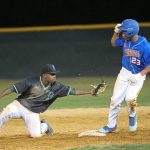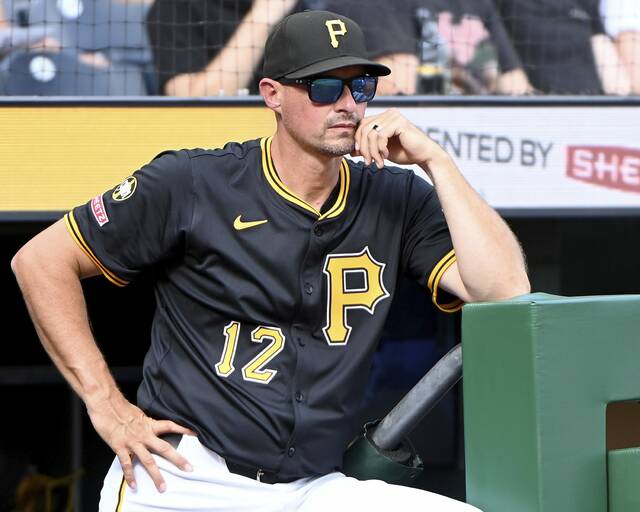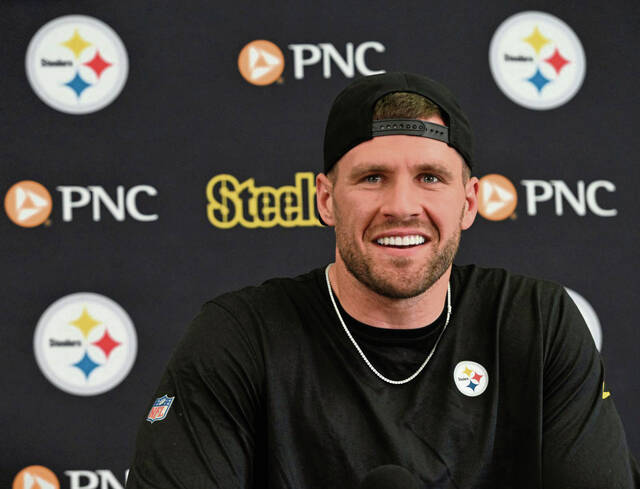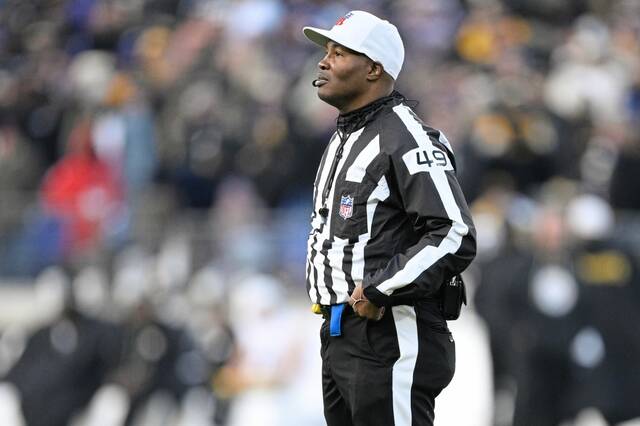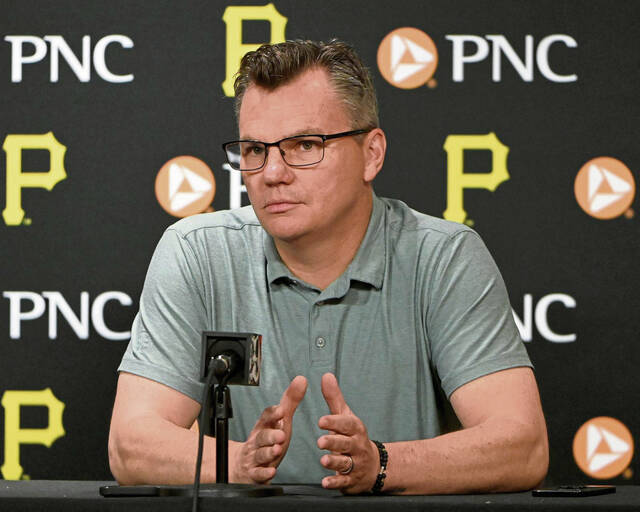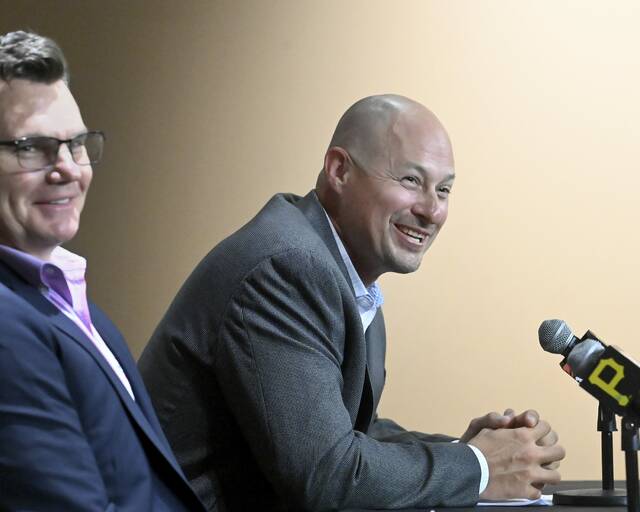Ben Cherington described a scene that sounded like constructive chaos in the Pittsburgh Pirates offices at PNC Park, an organized battle between the baseball operations and scouting departments to decide who they will select Sunday with the No. 1 overall pick in the MLB Draft.
When it comes to 1-1 — the first overall pick of the first round — no one can seem to agree on whom the Pirates will pick.
Not even the Pirates.
“We have to debate, debate, debate, disagree, disagree, disagree. Dive deep as we can, then commit,” Cherington said, later adding, “We have to get it right, then we have to get 20 more selections right.”
There is no consensus can’t-miss prospect atop the draft such as recent no-brainers Bryce Harper and Stephen Strasburg, or even the past two years, when the Detroit Tigers were set on Spencer Torkelson in 2020 and the Baltimore Orioles on Adley Rutschman in 2019.
Scouting analysts have the Pirates selecting a high school shortstop, though it’s a question of which one in a draft with four projected to go in the top 10. The majority of mock drafts are predicting it to be Marcelo Mayer of Eastlake High School in Chula Vista, Calif., possibly because of concerns that Jordan Lawlar of Dallas Jesuit will attend Vanderbilt. Kahlil Watson of Wake Forest, N.C., is the fast-rising wild card, and Brady House of Winder-Barrow, Ga., projects as a third baseman.
Cherington has dropped hints the Pirates could choose to go under slot value and sign someone willing to take less than the maximum $8,414,300 assigned to the top pick. Whether that’s an act of gamesmanship or a specific strategy remains to be seen, given the Pirates have five picks in the first four rounds (Nos. 1, 37, 64, 72 and 102) and a draft pool of $14,394,000 with which to sign them.
Cherington said he will lean heavily on his scouts to help decide which path the Pirates should take, which was expected to make for lively debates and disagreements until Sunday. Major-league teams have more access to information on college players, so selecting a prep prospect makes it more of a crapshoot.
When asked specifically about high school shortstops, Cherington emphasized the importance of how they project defensively, whether their bat plays and if their character checks out to carry the expectations of being the first overall pick.
“There’s really two parts to that question: How convicted are we that he’s going to play shortstop eight years from now? And how convicted are we that he’s going to be an average or plus defender and what we’d grade?” Cherington said. “That’s important. Obviously, the offense has become as important, because at some level, that’s a really limiting thing, right? You’ve got to hit enough, no matter how good the defense is. So that’s important, and then character is really important, because professional baseball is a long road. There’s going to be adversity, and there’s going to be struggles, and all sorts of things come along.”
“And then we talk about 1-1, too. I’ve never been involved in that, but I would imagine if you’re walking into an organization and walking into pro ball at 1-1, probably some eyeballs on you, right? So whoever it is is going to have to be prepared. We want to help with that, but the player’s going to have to be prepared, too.
“It’s long, knowing that there’s a lot to it, even though you feel like you can do it all tomorrow. You don’t, and there’s got to be some sort of patience personally and with the team and the coaches that you have, too,” Tucker said. “But it’s a great opportunity. It seems like everyone that gets drafted out of high school is a catcher or a shortstop. The road is long, but guys are doing it every year, getting to the big leagues and having success.”
MLB Draft analyst Dan O’Dowd, who drafted All-Star shortstops Troy Tulowitzki and Trevor Story in his 15 years as Colorado Rockies general manager, said it takes courage and conviction to select a shortstop who can hit and field well enough to stay at the position.
“I don’t want to take a kid who has to move off shortstop because of the bat,” O’Dowd said. “I want someone who can stay at the position and the bat’s going to be an impact bat.”
“Whichever guy you felt like is going to have the more consistent bat, ultimately that’s what plays at the big league level. You can be an elite defender anymore in our game, but if you don’t hit and you don’t hit consistently, you don’t play. Whoever their scouts feel like they’re sold more on the bat would be their separator, but that’s me.”
Mayer and Lawlar project as excellent hitters and defenders, so the separator could be signability. Lawlar turns 19 on July 17, which makes him eligible for the draft in two years if he decides to go to Vandy, which might be used as bargaining leverage. Mayer, who has signed with Southern Cal, doesn’t turn 19 until Dec. 12.
“A kid like Lawlar is interesting to me because he’s going to Vandy, he’s older and the family has predetermined that an education is important. He can go two years and come back out, so he probably is in a little bit more of a bargaining position,” O’Dowd said. “If I think Lawlar is the best player in the draft, I’m going to make Lawlar turn my offer down and go to Vandy — and then I’ll take a crack next year at the No. 1 pick. I’m not going to be afraid of that.”
The Pirates probably would prefer not to go the compensation route, but they could go under slot and take Watson. O’Dowd described Watson as having “electric, electric tools” but said he’d “be stunned” if he went to the Pirates with the first overall pick.
Cherington could play it safe and go the college route, choosing Louisville catcher Henry Davis or one of the hard-throwing Vanderbilt right-handers, Jack Leiter or Kumar Rocker.
The Pirates general manager isn’t tipping his hand on which way the draft will go, as long as it goes the way he wants.
“Finding the right player in the draft is really hard,” Cherington said. “I’d rather us just focus on who’s the best player for the Pirates and how can we get (20) more of them. Let’s just focus on that.”








